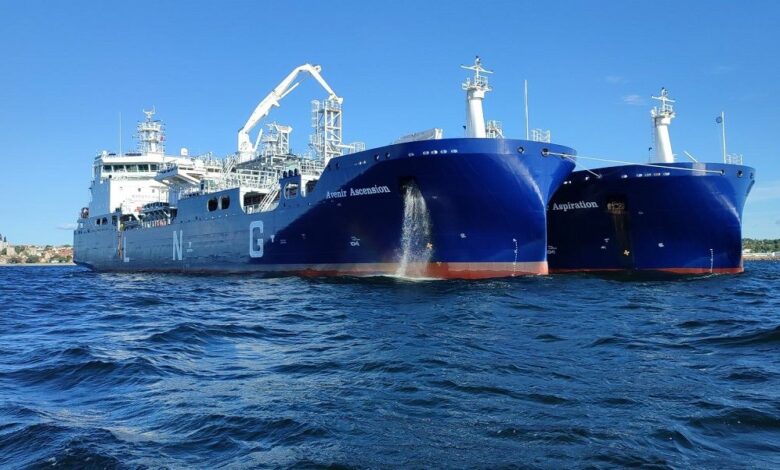Energy News Beat
James Peacock, who leads product development at XMAR, tackles an issue likely to be one of the talking points at this year’s Geneva Dry.
Chartering has always been a balancing act of relationships, instinct, and expertise. With artificial intelligence (AI) making waves in every industry, it’s fair to ask: could machines ever take over the role of a charterer? On paper, AI ticks all the right boxes: data crunching, pattern spotting, and route optimising. But the reality is more complicated, and assuming that AI will simply make charterers obsolete misses the point.
What AI can do (and does well)
AI is brilliant at handling the grunt work. Need to analyse a mountain of vessel positions, freight rates, and historical fixtures? AI can do it in seconds. It doesn’t get tired, doesn’t forget things, and doesn’t let emotion cloud its judgment. Tools already exist that can predict optimal routes, flag potential fixtures, and even estimate bunker costs.
In logistics, a 2023 McKinsey report found that automating repetitive tasks with AI led to 15 to 20% efficiency gains. Shipping, with its endless data and paperwork, is ripe for that kind of transformation. Whether it’s managing voyage data, calculating fuel consumption, or identifying trends, AI can make life easier for charterers by handling tasks that would otherwise eat up their day.
Where AI falls short
But chartering is about more than spreadsheets and graphs. It’s about navigating grey areas and knowing when to bend a little to get a deal across the line. Machines are great at following patterns, but can they sense when a shipowner’s ‘maybe’ really means ‘yes, if you push’? Can they pick up on the slight hesitation in someone’s voice during a negotiation?
Take recruitment as an example. AI tools have been used to scan CVs, but they’ve repeatedly missed good candidates because they didn’t fit the mold the algorithm expected. In the same way, AI risks missing nuances in chartering, like geopolitical shifts, local quirks, or even the subtle power of relationships that have been built over decades.
The data challenge
AI is only as good as the data you feed it, and the maritime industry isn’t exactly known for its tidy databases. Too many shipping companies rely on outdated systems, with critical information locked up in spreadsheets or buried in emails. A 2022 Splash survey found that 68% of shipping executives rated their internal data systems as ‘poor’ or ‘very poor’.
For AI to make reliable decisions, it needs reliable data. That’s where platforms like XMAR come in, not to replace charterers but to give them the tools to do their jobs better. By organising data, automating admin, and surfacing insights, platforms can help charterers focus on the bigger picture.
A changing role, not a disappearing one
So, will AI replace charterers? Probably not. But it will change the job. Instead of spending hours sorting through emails or calculating voyage costs, charterers could spend more time on strategy and negotiation. Imagine having an AI assistant that flags opportunities, predicts market trends, or drafts fixture notes for you to review.
Look at doctors. They now use AI for diagnostics, but they’re still the ones making the final call. The same goes for charterers. AI won’t take over, it’ll be a second set of eyes, a tool to sharpen decisions.
Moving forward
The question isn’t whether AI will replace charterers, it’s how we use it to make charterers better at what they do. Shipping is still a people business. Relationships matter. Trust matters. But that doesn’t mean we can’t embrace technology to lighten the load.
A number of platforms are showing that you don’t have to choose between man and machine. The future of chartering isn’t about one replacing the other, it’s about working together.
Interested to find out more about the intersect between chartering and technology? Attend Geneva Dry’s Chartering Spotlight on April 28 in Switzerland to find out how brokers and platforms will evolve, and what owners and charterers will seek out of their broking houses in the years ahead. Visit www.genevadry.com to find out more.
The post Is AI about to replace charterers? appeared first on Energy News Beat.






















